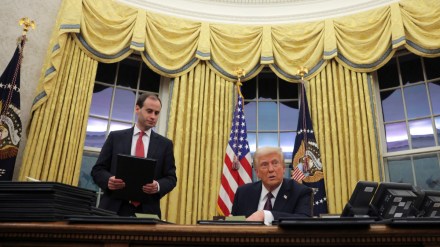In a historic and controversial decision during his final hours in office, US President Joe Biden issued pre-emptive pardons to Dr. Anthony Fauci, the former White House Chief Medical Advisor, and retired General Mark Milley, the former Chairman of the Joint Chiefs of Staff. The move aims to protect the two high-profile public servants from what Biden described as “politically motivated prosecutions” anticipated under the forthcoming administration of Donald Trump.
Biden also extended similar pardons to members, staff, and witnesses of the House committee that investigated the January 6, 2021, attack on the US Capitol by Trump supporters. These pardons are seen as a safeguard against potential retaliation as Trump prepares to take office after his re-election.
Protecting Public Servants
In a formal statement, Biden lauded Fauci and Milley for their “honorable and distinguished service” to the nation, emphasizing that their contributions should not be tarnished by political vendettas.
“These public servants have served our nation with honor and distinction and do not deserve to be the targets of unjustified and politically motivated prosecutions,” Biden said. “This decision is not just about justice for them but about preserving the integrity of public service in America.”
Dr. Fauci became a polarizing figure during the Covid-19 pandemic, revered by many for his leadership and expertise but heavily criticized by Trump and his supporters, who accused him of overreach and fostering unnecessary public health restrictions. Milley, meanwhile, faced scrutiny from Trump allies for his role in ensuring military stability during the Trump administration’s final months, including reportedly taking steps to reassure foreign leaders during a volatile period.
Pardons for January 6 Panel Witnesses
Biden’s pardons also covered individuals involved in the House Select Committee’s investigation into the Capitol riot, a probe that became a flashpoint of partisan controversy. The investigation, which implicated Trump in inciting the attack, led to criminal referrals to the Justice Department. Witnesses and committee staff members reportedly expressed concerns about being targeted for their roles in the inquiry, particularly after Trump vowed to seek retribution against what he called the “deep state” if re-elected.
A Rare and Bold Act
Pre-emptive pardons, though constitutionally permissible, are uncommon in American politics. Biden’s sweeping use of the power underscores the deepening divisions in Washington and the fraught legacy of Trump’s presidency. Critics argue that the move undermines the legal process, while supporters contend it is a necessary step to prevent misuse of prosecutorial powers for political ends.
Legal experts have noted the unusual nature of pre-emptive pardons, as they are typically issued post-conviction. However, the Constitution grants presidents broad authority to issue pardons for federal offenses, even preemptively, as evidenced by Gerald Ford’s pardon of Richard Nixon after Watergate.
Mixed Reactions
The decision has sparked fierce debate across the political spectrum. Democratic lawmakers and civil rights advocates have largely supported Biden’s actions, viewing them as a protective measure against potential authoritarian overreach.
“This is a courageous act to defend democracy and the rule of law,” said Senator Elizabeth Warren. “President Biden has ensured that those who stood up for truth and justice are not punished for doing their duty.”
Republicans, however, were quick to condemn the move. House Speaker Kevin McCarthy called it “an unprecedented abuse of presidential power” and accused Biden of undermining accountability. Trump himself, in a statement, labeled the pardons “a desperate act of a failed presidency” and vowed to investigate “every aspect of this corrupt administration.”
Looking Ahead
As the nation braces for Trump’s return to power, Biden’s unprecedented pardons set a contentious tone for the transition. Legal experts predict that the pardons will be challenged both politically and rhetorically, though they are unlikely to face judicial review due to the expansive nature of presidential pardon powers.
For Fauci, Milley, and those who played a role in the January 6 investigation, the pardons offer a shield against legal uncertainty in a political climate that remains deeply polarized. Biden’s parting act signals his attempt to leave a legacy of protecting public servants and reinforcing the boundaries of political accountability.
As Trump re-enters the White House, the implications of Biden’s decision will likely resonate in both legal and political arenas, shaping the discourse around justice, public service, and the limits of executive power.
